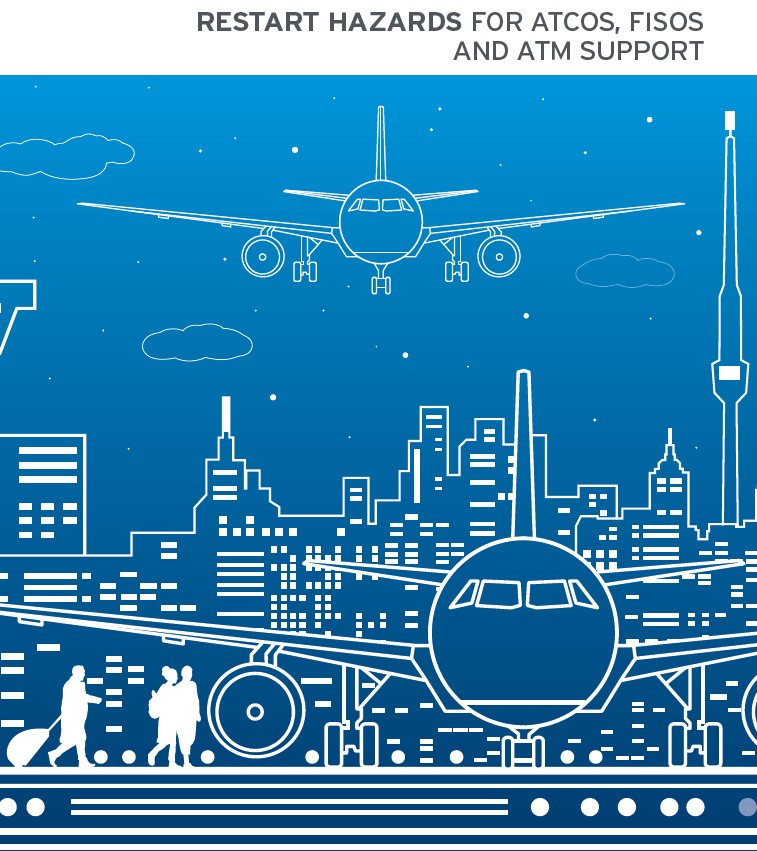GATCO has recently published guidelines on the aviation restart hazards its members (ATCOs, FISOs and ATM support) can encounter as air traffic starts to increase, as a result of the easing down around the world of the COVID-19 lockdown measures. The COVID-19 crisis has caused huge changes in how we go about our work in the ATM industry. How we return to normal operations as the crisis eases is likely to see significant changes across a range of our working practices, but will also introduce a number of safety issues. Both the European Aviation Safety Agency (EASA) and the Eurocontrol Safety Team have worked on projects involving a large number of stakeholders across Europe to identify safety issues associated with how we are working now and the recovery of normal operations as we move out of COVID-19 restrictions.
GATCO, through its membership of IFATCA, has contributed to those projects, providing input mostly from an operational point of view.The hazards identified can come from a wide variety of sources: from within the operational unit including existing issues such as maintaining currency and recency, and new issues such as the need to maintain social distancing. A large number of hazards, however, come from external sources, for example technical issues with aircraft and cross border issues with adjacent air navigation service providers. The work also included sample mitigations to address those risks identified although it should be noted that they are not exhaustive. Furthermore, the measures suggested may not address all possible eventualities.
The GATCO policy team has taken its input to the aforementioned projects and extracts from the output produced to capture the issues we feel are more akin to the needs of our members at operational units – the hazards aimed at more strategic management level were considered less relevant and have not been included. It is understood that conditions may vary from unit to unit and will also be dependent on the COVID-19 restrictions in place at that time.
GATCO members can access the electronic version of the guidelines on the link below:

